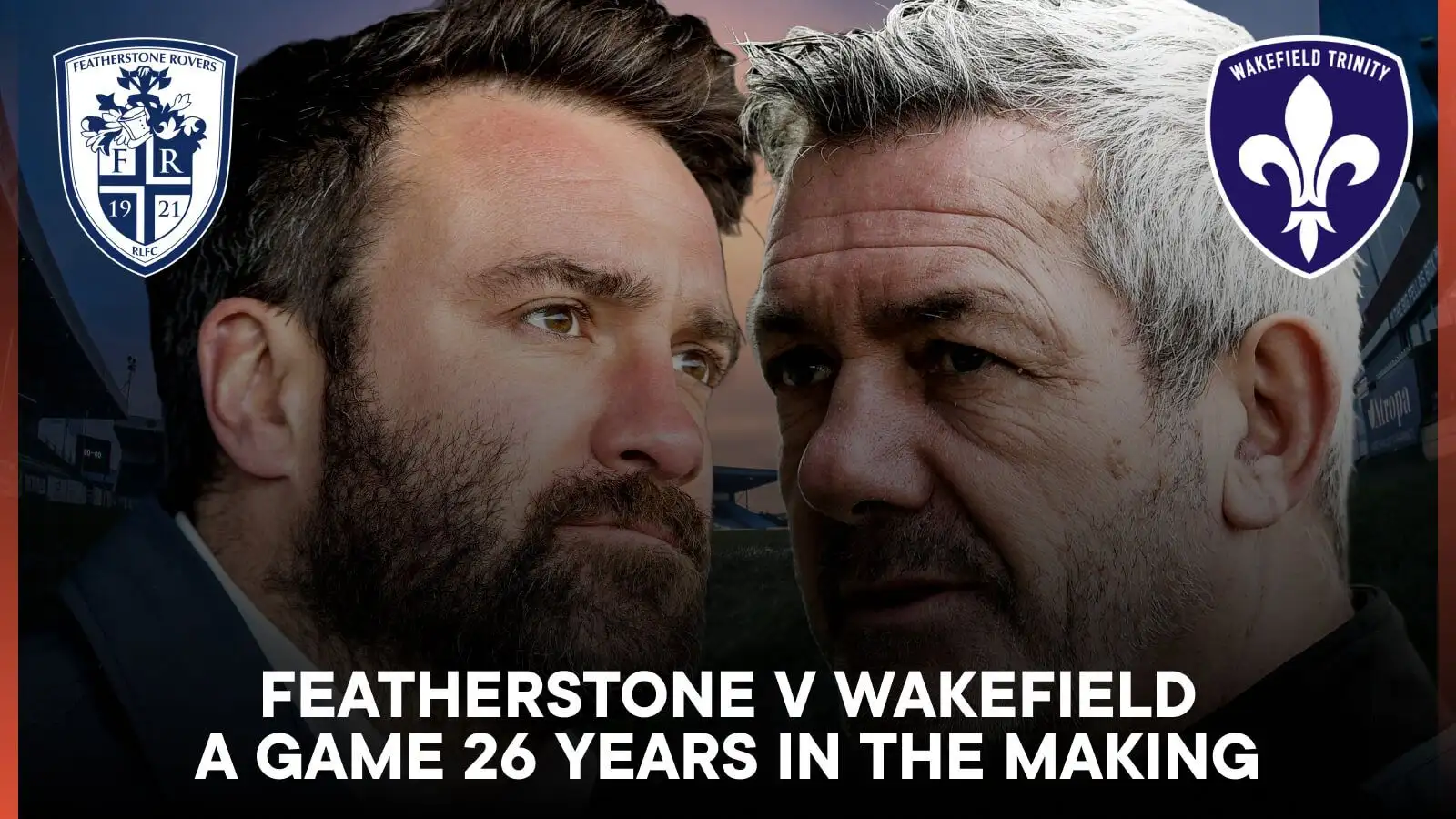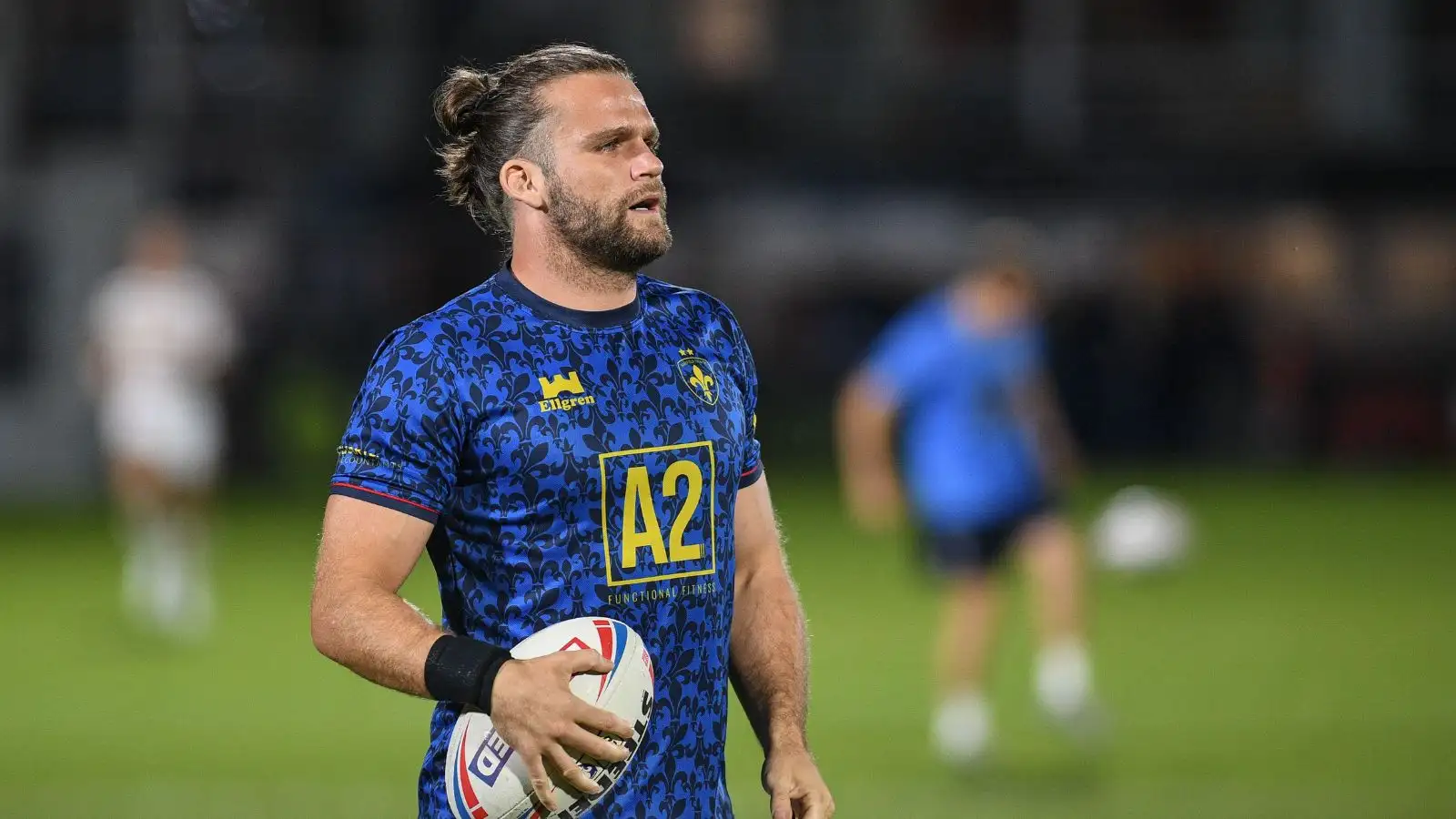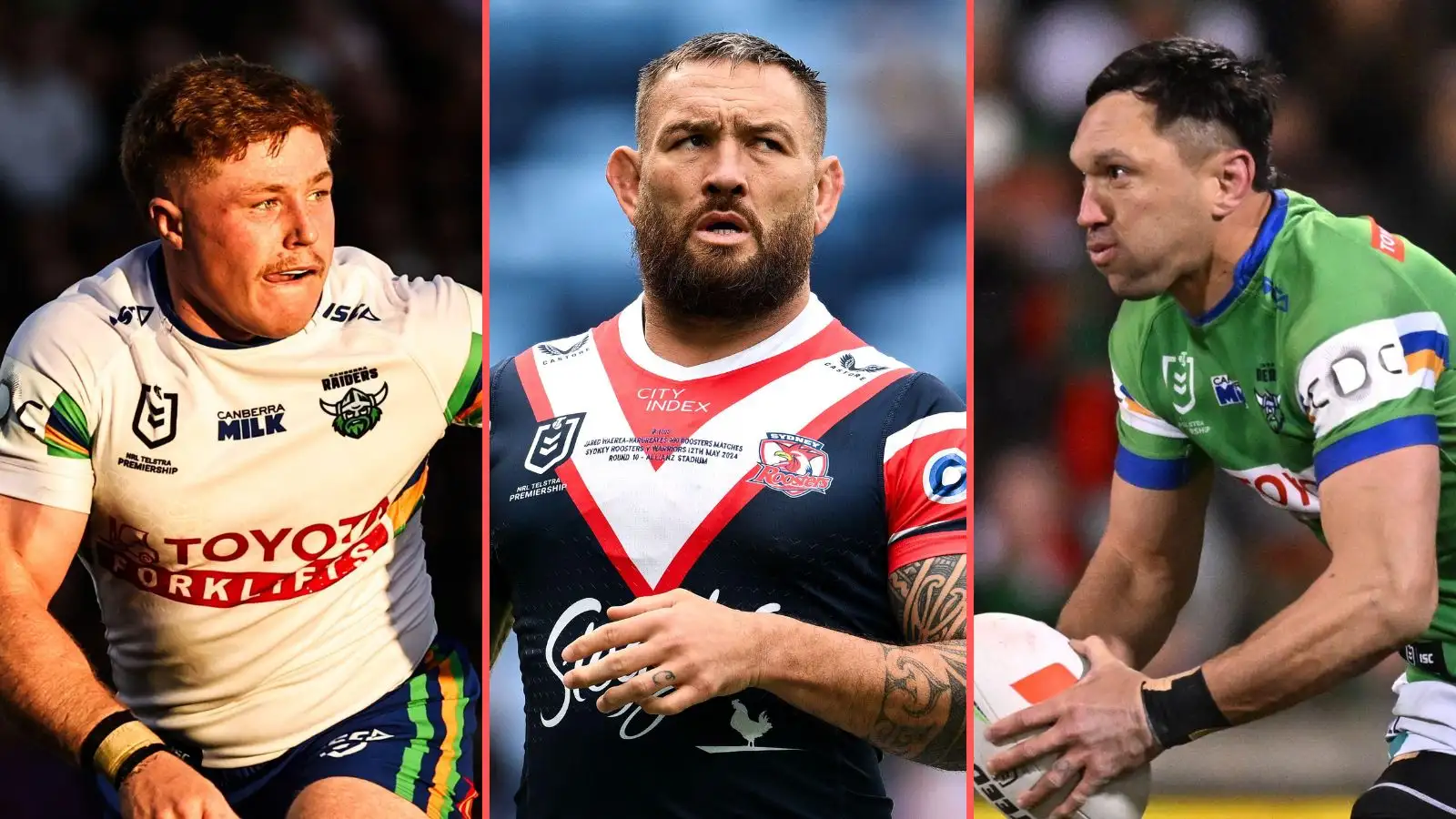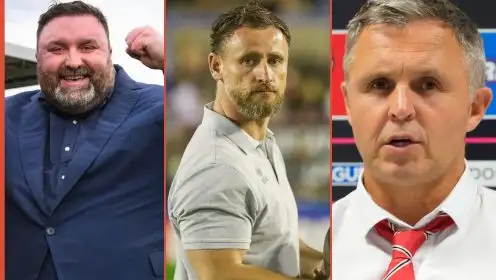Featherstone Rovers v Wakefield Trinity: A game 26 years in the making

The year is 1998. Featherstone Rovers are seven minutes away from Super League, holding a four-point lead in the First Division Grand Final over neighbours Wakefield Trinity. Karl Pratt is running away with the ball in hand to seal the deal, but no. Trinity would be the winners, and the pair haven’t met competitively since. Until now.
Pratt had half of the John Smith’s Stadium in that final jumping for joy, until he was pulled back by the referee. Asa Amone’s tackle at the other end had brought a verdict of a knock-on.
From the resulting scrum, Wakefield pounced, Wayne McDonald working the ball out to Frances Stephenson, diving over to level the scores, with Aussie Garen Casey’s kick adding the extras and providing the winning points, 24-22 the final score.
A spot in the Sixth Round of the competition is all that’s up for grabs on the pitch today as the two sides meet for the first time since that final, and let’s be honest, the reality is that whoever progresses could well be knocked out by a Super League team later this month.
But it’s more than that, it’s all about earning the bragging rights in the local area. There is only 5.6 miles between the home venues of Trinity and Rovers, so you’d expect some rivalry to be there anyway.

But given what unfolded in the years which followed that Grand Final, 26 years ago this September, it’s no surprise there’s such an emphasis on today’s game, which will be shown live on ‘The Sportsman’.
Featherstone Rovers and Wakefield Trinity prepare for clash 26 years in the making
What followed for Wakefield wasn’t all plain sailing, but it was certainly a much prettier picture.
25 consecutive years in Super League, three of those bringing play-off finishes. In 2004, they led Wigan 14-0 with a shot at getting into a Grand Final firmly in their sights, only to be clawed back and eventually lose out 18-14.
There were plenty of memorable moments outside of those play-off seasons too, Jacob Miller’s drop goal at Magic Weekend against Catalans Dragons up there with the very best.
It’s never all sunshine and rainbows, and Trinity were forced into administration in 2011, but even in the tough times – until last year – they always managed to find a way to pull through, no matter how much their backs were against the wall on and off the field.
Earning a reprieve that year after Crusaders pulled out of Super League, both 2006 and 2019 also brought wins on the final day of the campaign – against Castleford Tigers & London Broncos respectively – which saw Wakefield survive and their opponents relegated.

Trinity too had to come through the very first Million Pound Game in 2015, beating another of their West Yorkshire counterparts in Bradford Bulls in front of a sell-out crowd at Belle Vue.
And for all of the trials and tribulations of Super League, we’re sure Featherstone would have changed places at any one point over the last quarter-of-a-century….
READ NEXT: Tyler Dupree – Young leader’s standout statistics from Wigan Warriors’ rout of London Broncos
Featherstone Rovers’ failed Super League dream
It mustn’t be forgotten that before a ball had even been kicked – or thrown – in Super League, Featherstone were offered the chance to merge with Wakefield and fellow local outfit Castleford into a club/team which would have been known as ‘Calder’.
Wakefield were all for this happening, but Rovers’ shareholders overwhelmingly voted against the idea and essentially were demoted from the top table to make way for both London and Paris Saint-Germain at the time.
After the Grand Final defeat to Trinity, the Super League push died out, with no funds left to make it happen.
Head coach Peter Roe did bring a bit of stability, but was nabbed by Wakefield come 2001, and Fev’s administration came the following year with debts of over £400,000 against their name.
Eventually, they’d succumb to relegation down to the third tier, and take two years to get back, even after supporter’s money helped towards the marquee signings of players like Paul Handforth, Chris Ross, Tom Haughey, Jamie Field and Loz Wildbore.

Numerous years plagued by licensing would follow, along with an absolute mass of head coaches, and in truth that’s something which has continued on to the present day.
Stability isn’t common at Post Office Road. Even last year when romping the Championship, the club’s hierarchy felt compelled to get rid of assistant Leon Pryce and head coach Sean Long, replaced by James Ford who ultimately failed to deliver the end goal of promotion, falling to a shock defeat at home to London in the play-offs.
That Super League dream was never realised, and it looks highly unlikely to be achieved anytime soon given the re-introduction of licensing by IMG, or ‘grading’ as they call it now.
READ NEXT: Dual-code former Love Island winner has trial with Super League club
The current day: How Wakefield and Featherstone shape up
As alluded to above, Featherstone are a completely different club – or at least team – now compared to last season, with the parallels between the current day and the wake of the Grand Final defeat to Trinity clear for all to see.
The money is no longer being pumped in to the playing squad, huge numbers have moved on from the squad they had last season, and it feels very much like the end of another Super League push.
They host their neighbours this afternoon on the back of two wins in the Challenge Cup against lower league opposition, but the only time so far they’ve taken on a Championship side in 2024, they were beaten. Batley Bulldogs – who Fev also face next weekend in their opening league game of the season – got the better of them in the 1895 Cup group stages.
It’s almost the polar opposite feeling at Wakefield, and that’s after a relegation.

There’s a new owner of Trinity in local businessman Matt Ellis and a new head coach in Daryl Powell, a very familiar face at Post Office Road having been in charge of Rovers from 2008 to 2013.
To go along with that pair, there’s a wealth of new talent that has been recruited from Super League, the Championship and Down Under, boasting a squad capable of treating the second tier like a training camp.
That’s what 2024 has been so far for Trinity, in the best possible way. They’ve wiped the floor with every side they’ve faced across the two cup competitions, scoring a whopping 328 points across their five games to date with just 28 conceded at the other end.
It could be a long old afternoon for Fev if Powell’s men continue that form today.
At least they won’t have to wait 26 years to play each other again, no matter what happens!



